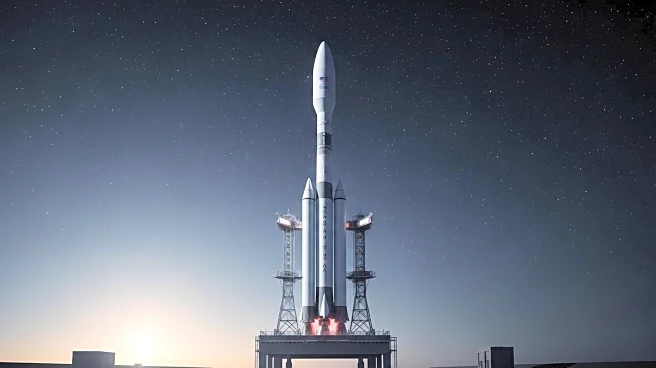What's Happening?
U.S. Senator Ted Cruz, along with a bipartisan group of senators from the Senate Committee on Commerce, Science and Transportation, expressed concerns that the United States may fall behind China in the space race. During a hearing, lawmakers highlighted delays in NASA's moon missions, which could allow China to gain a strategic advantage in space exploration. Cruz emphasized that space is now a strategic frontier with direct implications for national security, economic growth, and technological leadership. The senators are advocating for increased funding for NASA to support its Artemis mission, which aims to send U.S. astronauts back to the Moon by 2027. Former NASA administrator Jim Bridenstine testified about technical hurdles, including the lack of a lunar landing system and refueling capabilities for SpaceX's Starship, which threaten NASA's timeline.
Why It's Important?
The potential for China to surpass the U.S. in space exploration poses significant risks to American national security and technological leadership. If China establishes a foothold on the Moon, it could control valuable lunar resources and gain strategic advantages. This development could shift the balance of power in space capabilities, affecting global geopolitics and technological innovation. Protecting NASA's funding is crucial to maintaining U.S. leadership in space exploration and ensuring the country's ability to compete with China in this strategic domain.
What's Next?
Lawmakers are pushing back against proposed budget cuts to NASA, advocating for additional funding to support critical programs like Artemis. The extra funding aims to address technical challenges and accelerate the timeline for U.S. lunar missions. As the space race intensifies, the U.S. must overcome technical obstacles and secure necessary resources to maintain its leadership in space exploration. The outcome of these efforts will have long-term implications for national security and technological advancement.










